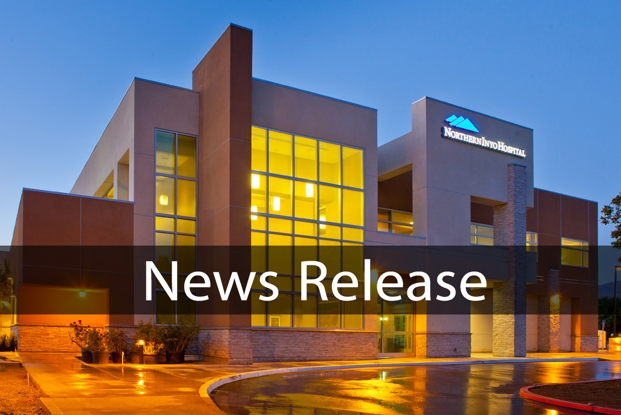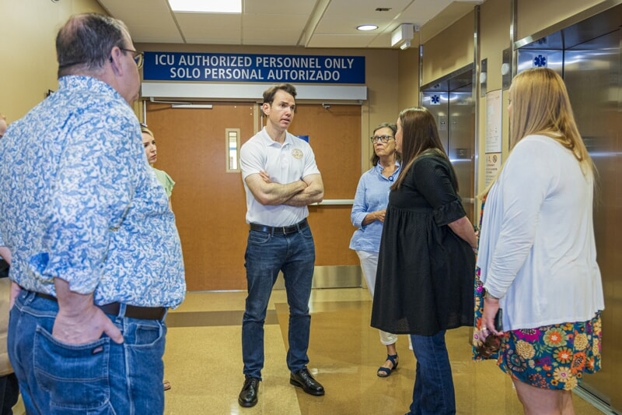NIHD clarifies position, staffing status
- Category: NIHD News
- Posted On:
After receiving concerned messages from the public, Northern Inyo Healthcare District would like to clarify the headline from last week's article, "NIHD objects to vaccination mandate." While recognizing the space limitations placed on editors, this headline resulted in the NIHD Board of Directors and Executive Team members receiving several calls and emails from concerned residents about the status of the hospital.
Under the looming healthcare worker vaccination mandate, NIHD staff, like others across California, have the option of getting vaccinated for COVID or submitting exemptions for religious or medical reasons. They are also required to undergo weekly testing for COVID. For those not vaccinated and without the religious or medical exemptions filed by Sept. 30, it becomes a disciplinary action for the staff member. It also puts NIHD out of compliance with state regulations.
To clarify, Board Chair Robert Sharp said NIHD remains supportive of the COVID vaccinations and their science. "We certainly understand all the concerns expressed to us about the vaccines; however, our top priorities remain our patients and our staff," Sharp said. "The District's letter to the state was designed to educate about rural conditions, not chastise or discount the mandate."
Interim Chief Executive Officer Kelli Davis explained that NIHD reached out to California's Department of Public Health (CDPH) to express concern about these mandates' impact on the staffing resources. "Our intent was not to question the mandates," Davis said. "Rather as a rural hospital, in a remote location, staffing was challenging even before the mandates. There is a national shortage of health care workers in the country right now, and many facilities are feeling the pressure."
Davis said the District's Executive Team is working closely with legal counsel to determine what course NIHD can take in this situation. "Ultimately, our goal is to keep our staff employed, yet we have to recognize that there are mandates that are required of us, and those come with vaccine requirements. The consequences affect reimbursements from Medicare and Medicaid, which account for almost 60 percent of our income. So, the big question is how do we balance what is expected of us on all these fronts."
Sharp thanked the Inyo County Board of Supervisors for lending its support in a similar letter. "As we all know, sometimes the agencies assigned to guide us don't always clearly see how their decisions can impact rural communities," he said. "We hope they heard our voices and that some relief can be found."
The looming federal vaccine mandate has yet to be fully defined and is under review by the Department of Labor. Yet, the federal mandate could have a more substantial impact on rural hospitals than the state mandate.
"The federal mandate requirements are tied to our conditions of participation with Medicare and Medicaid, meaning there is a potential for the government to withhold these reimbursements if we are not compliant with the mandate once fully defined," Davis explained. "At NIHD, these reimbursements fluctuate, but it is about 60 percent of our reimbursements. It's a significant part of how we keep our doors open."
Social media also boosted the level of concern last weekend by implying staffing had reached critical levels, and there were no beds available at NIH. NIHD Chief Nursing Officer Allison Partridge acknowledges that staffing remains fluid in both the hospital and the outpatient clinics.
"We are reviewing staffing daily to evaluate our patient mix because it determines our staffing levels," Partridge explained. "Do we have ICU patients, COVID patients, pediatric patients, labor patients? There are times where we have to look at the numbers and acuity and make decisions for one department based on what is happening in another."
Partridge said the Emergency Department is operating all its beds. "But should a situation present where we have staffing challenges, we may have to look at that, which means triaging patients and still treating everybody, but it could mean a longer expected wait time for some patients depending on severity," she said.
An additional concern is patients that require transfer to a higher level of care. "Many of the larger facilities are full and cannot always take our patients. What once was a one or two phone call transfer, we now find ourselves calling 10, 15, 20, or close to 30 hospitals before we can find placements for our patients, when necessary," Partridge explained.
That means longer hold times in the Emergency Department for those needing transfer. "Some days, I am surprised by how quickly a patient is transferred, and other days it takes so much longer," Partridge said. "It is a very fluid situation, and so far, our staff has done its best to rise to the occasion, but this has been an exhausting year and a half. It's been very trying for everyone."
Designated NIHD officials will continue to release accurate and timely updates affecting the community.


